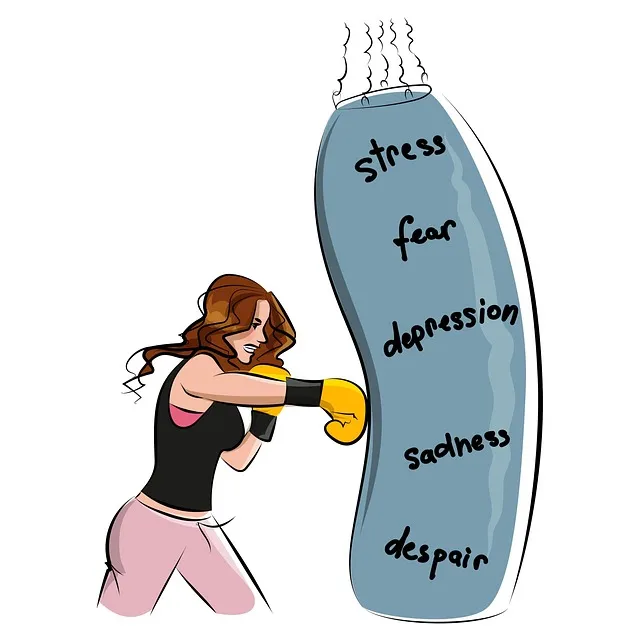The Centennial Kaiser Permanente Mental Health Access Center advocates for positive thinking exercises as a powerful tool for well-being and resilience. Through practices like journaling, mindfulness meditation, and affirmations, individuals develop optimism, self-awareness, and better coping strategies for stress and anxiety. This holistic approach benefits both individuals and communities by reducing mental illness stigma, improving emotional intelligence, and fostering a supportive environment, as evidenced by successful Risk Management Planning and community-wide improvements in well-being.
“Positive thinking exercises have emerged as a powerful tool for enhancing mental well-being, and their implementation is gaining traction in various settings. This article delves into the transformative power of such exercises, highlighting the significant role played by the Centennial Kaiser Permanente Mental Health Access Center in promoting holistic health. We explore evidence-based strategies for designing effective programs, focusing on techniques to foster resilience and optimism. Furthermore, we discuss methods to measure success and assess the long-term impact on individual and community mental health, emphasizing the center’s contribution.”
- Understanding Positive Thinking Exercises: A Comprehensive Overview
- The Role of the Centennial Kaiser Permanente Mental Health Access Center in Promoting Well-being
- Designing Effective Positive Thinking Exercise Programs: Strategies and Techniques
- Measuring Success and Long-term Impact: Assessing the Benefits for Individual and Community Mental Health
Understanding Positive Thinking Exercises: A Comprehensive Overview

Positive thinking exercises are a powerful tool within the mental health arsenal, offering a proactive approach to enhancing well-being and fostering resilience. At the Centennial Kaiser Permanente Mental Health Access Center, we recognize the profound impact these practices can have on individuals’ daily lives. Such exercises encourage people to cultivate a more optimistic mindset, which is essential for navigating life’s challenges and promoting overall mental health.
These activities are designed to enhance self-awareness, reframe negative thoughts, and build emotional resilience. For instance, self-awareness exercises help individuals recognize their thought patterns and triggers, enabling them to manage stress and anxiety effectively. By regularly engaging in these practices, whether it’s through journaling, mindfulness meditation, or positive affirmation, mental health professionals can support clients in reducing the stigma associated with mental illness and enhancing their overall coping mechanisms. This holistic approach not only benefits individuals but also contributes to a more supportive and inclusive community, as highlighted by successful Risk Management Planning for Mental Health Professionals.
The Role of the Centennial Kaiser Permanente Mental Health Access Center in Promoting Well-being

The Centennial Kaiser Permanente Mental Health Access Center plays a pivotal role in promoting emotional well-being within the community. As a leading mental health facility, it offers a comprehensive range of services and programs designed to enhance the overall mental wellness of individuals. Through innovative approaches and evidence-based practices, the center empowers people to develop inner strength and resilience.
One of its key initiatives is the integration of mindfulness meditation techniques into various therapeutic sessions. By fostering awareness and presence in the moment, these practices help individuals cultivate a deeper sense of calm and clarity. This, in turn, enables them to better manage stress, anxiety, and other mental health challenges. The center’s dedicated team of experts provides guidance and support, ensuring that participants can incorporate these emotional well-being promotion techniques into their daily lives, thereby achieving long-lasting positive changes.
Designing Effective Positive Thinking Exercise Programs: Strategies and Techniques

Designing effective positive thinking exercise programs requires a strategic approach tailored to individual needs and goals. At the Centennial Kaiser Permanente mental health access center, professionals emphasize integrating various techniques for optimal impact. One key strategy involves incorporating mindfulness practices, such as meditation and deep breathing exercises, to enhance focus and reduce stress. These techniques not only improve emotional intelligence but also serve as powerful risk management tools, enabling individuals to better navigate challenging situations.
Additionally, positive affirmations and cognitive reframing are essential components of these programs. By encouraging participants to challenge negative thoughts and replace them with positive ones, the exercises foster a more optimistic mindset. This approach, combined with regular practice, can significantly contribute to stress management and overall mental well-being. Incorporating these strategies into structured sessions ensures that individuals receive guidance and support throughout their journey towards cultivating positive thinking habits.
Measuring Success and Long-term Impact: Assessing the Benefits for Individual and Community Mental Health

Measuring success and assessing long-term impact are crucial components when implementing positive thinking exercises. The benefits extend far beyond individual progress, potentially transforming community mental health as a whole. For instance, the Centennial Kaiser Permanente Mental Health Access Center has witnessed improvements in emotional regulation among its clients, indicating that these exercises can foster inner strength development and even provide trauma support services on a larger scale.
Over time, consistent engagement with positive thinking practices may lead to reduced stress levels, enhanced coping mechanisms, and improved overall well-being within communities. This shift could result in stronger social connections, increased resilience, and a more supportive environment for mental health awareness and accessibility, mirroring the resources provided by the Centennial Kaiser Permanente center.
Positive thinking exercises have emerged as powerful tools for enhancing mental well-being, and the Centennial Kaiser Permanente Mental Health Access Center has played a pivotal role in promoting these practices. By designing effective programs and measuring their impact, we can ensure that these exercises bring long-term benefits to both individuals and communities. This comprehensive approach, informed by strategies outlined in this article, enables us to foster resilience, reduce stress, and cultivate a more optimistic outlook, ultimately contributing to healthier, happier lives.






